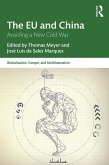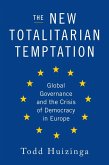Why Europe Intervenes in Africa analyses the underlying causes of all European decisions for and against military interventions in conflicts in African states since the late 1980s. It focuses on the main European actors who have deployed troops in Africa: France, the United Kingdom and the European Union. When conflict occurs in Africa, the response of European actors is generally inaction. This can be explained in several ways: the absence of strategic and economic interests, the unwillingness of European leaders to become involved in conflicts in former colonies of other European states, and sometimes the Eurocentric assumption that conflict in Africa is a normal event which does not require intervention. When European actors do decide to intervene, it is primarily for motives of security and prestige, and not primarily for economic or humanitarian reasons. The weight of past relations with Africa can also be a driver for European military intervention, but the impact of that past is changing. This book offers a theory of European intervention based mainly on realist and post-colonial approaches. It refutes the assumptions of liberals and constructivists who posit that states and organisations intervene primarily in order to respect the principle of the 'responsibility to protect'.
Dieser Download kann aus rechtlichen Gründen nur mit Rechnungsadresse in A, B, BG, CY, CZ, D, DK, EW, E, FIN, F, GR, HR, H, IRL, I, LT, L, LR, M, NL, PL, P, R, S, SLO, SK ausgeliefert werden.









